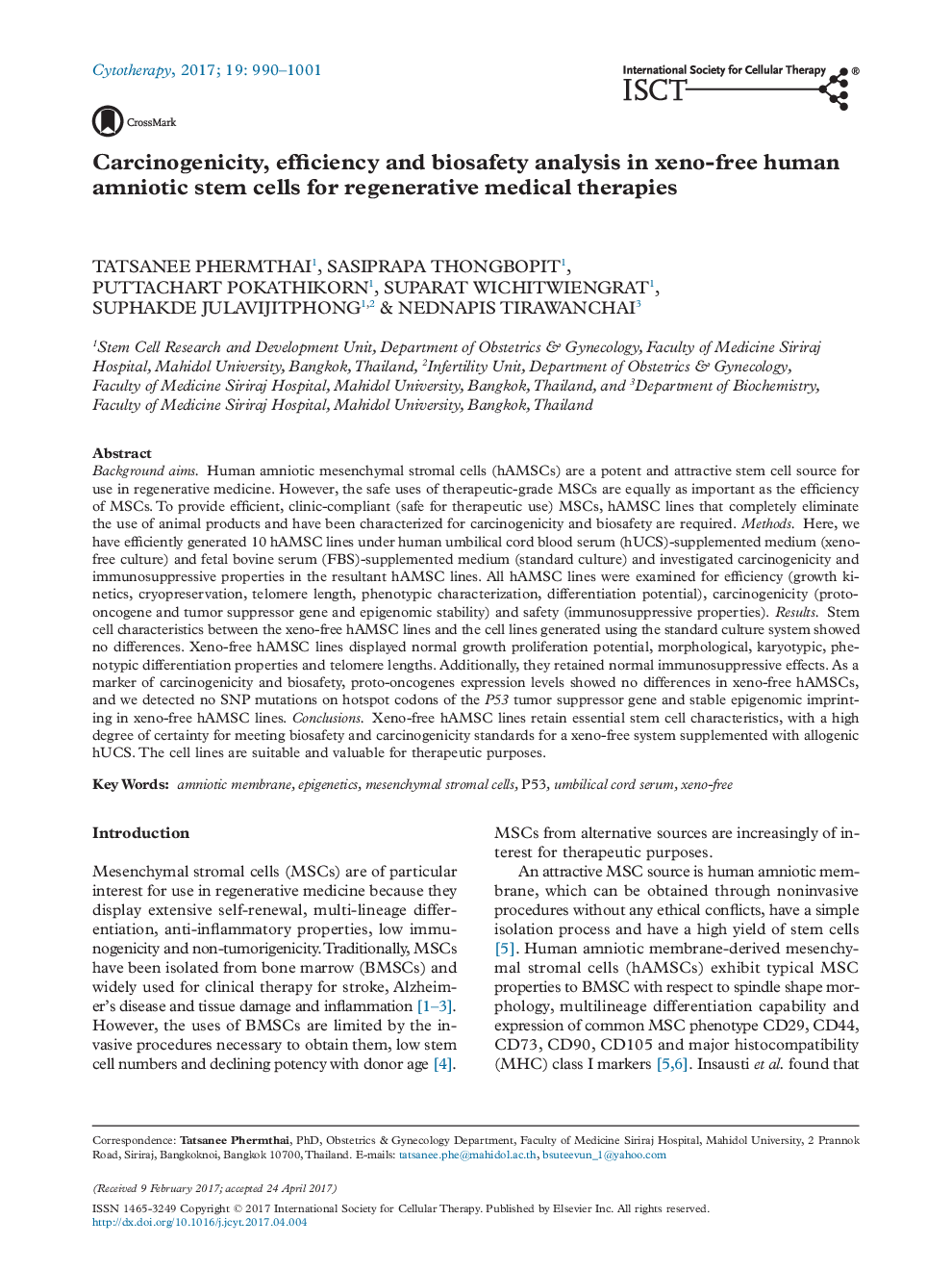| کد مقاله | کد نشریه | سال انتشار | مقاله انگلیسی | نسخه تمام متن |
|---|---|---|---|---|
| 5531376 | 1401793 | 2017 | 12 صفحه PDF | دانلود رایگان |
Background aimsHuman amniotic mesenchymal stromal cells (hAMSCs) are a potent and attractive stem cell source for use in regenerative medicine. However, the safe uses of therapeutic-grade MSCs are equally as important as the efficiency of MSCs. To provide efficient, clinic-compliant (safe for therapeutic use) MSCs, hAMSC lines that completely eliminate the use of animal products and have been characterized for carcinogenicity and biosafety are required.MethodsHere, we have efficiently generated 10 hAMSC lines under human umbilical cord blood serum (hUCS)-supplemented medium (xeno-free culture) and fetal bovine serum (FBS)-supplemented medium (standard culture) and investigated carcinogenicity and immunosuppressive properties in the resultant hAMSC lines. All hAMSC lines were examined for efficiency (growth kinetics, cryopreservation, telomere length, phenotypic characterization, differentiation potential), carcinogenicity (proto-oncogene and tumor suppressor gene and epigenomic stability) and safety (immunosuppressive properties).ResultsStem cell characteristics between the xeno-free hAMSC lines and the cell lines generated using the standard culture system showed no differences. Xeno-free hAMSC lines displayed normal growth proliferation potential, morphological, karyotypic, phenotypic differentiation properties and telomere lengths. Additionally, they retained normal immunosuppressive effects. As a marker of carcinogenicity and biosafety, proto-oncogenes expression levels showed no differences in xeno-free hAMSCs, and we detected no SNP mutations on hotspot codons of the P53 tumor suppressor gene and stable epigenomic imprinting in xeno-free hAMSC lines.ConclusionsXeno-free hAMSC lines retain essential stem cell characteristics, with a high degree of certainty for meeting biosafety and carcinogenicity standards for a xeno-free system supplemented with allogenic hUCS. The cell lines are suitable and valuable for therapeutic purposes.
Journal: Cytotherapy - Volume 19, Issue 8, August 2017, Pages 990-1001
